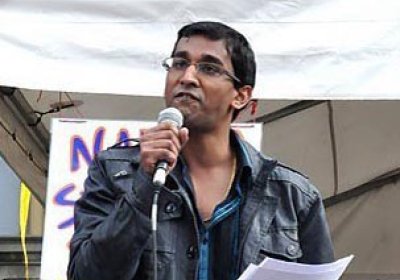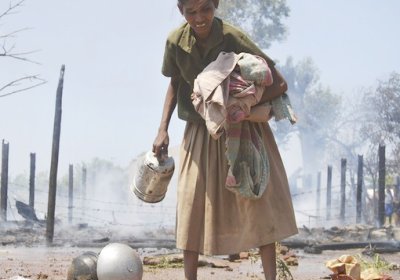Tamil Eelam
The article below first appeared on TamilNet on February 5. *** Tamil diaspora activists in Europe, Canada and Australia staged protests on February 4 coinciding with Sri Lanka’s official 65th “independence day”, with activists alleging that this so-called “independence” was only a freedom given to the Sinhala nation to commit a protracted genocide of the Tamil Eelam nation.
This year is the 15th anniversary of the Nargar Kovil school massacre in Tamil Eelam, the Tamil area of Sri Lanka. On September 22, 1995, the Sri Lankan Air Force (SLAF) bombed Nargar Kovil Maha Vidyalayam schoolyard, which was crammed with 750 children on their lunch break. Reports of the number of children killed vary from 26 to 70. Twelve of the children killed were six or seven years old. One hundred and fifty were injured, including 40 seriously. Twenty-two children had their limbs amputated. Ten of the amputees were under 12.
On April 9, the Australian Labor Party government, then led by Kevin Rudd, imposed a three-month suspension of the processing of refugees from Sri Lanka. On July 6, the Labor government of PM Julia Gillard announced, in the context of unveiling its pre-election tougher stance against refugees, that the suspension would not be extended.
- Previous page
- Page 3
- Next page








